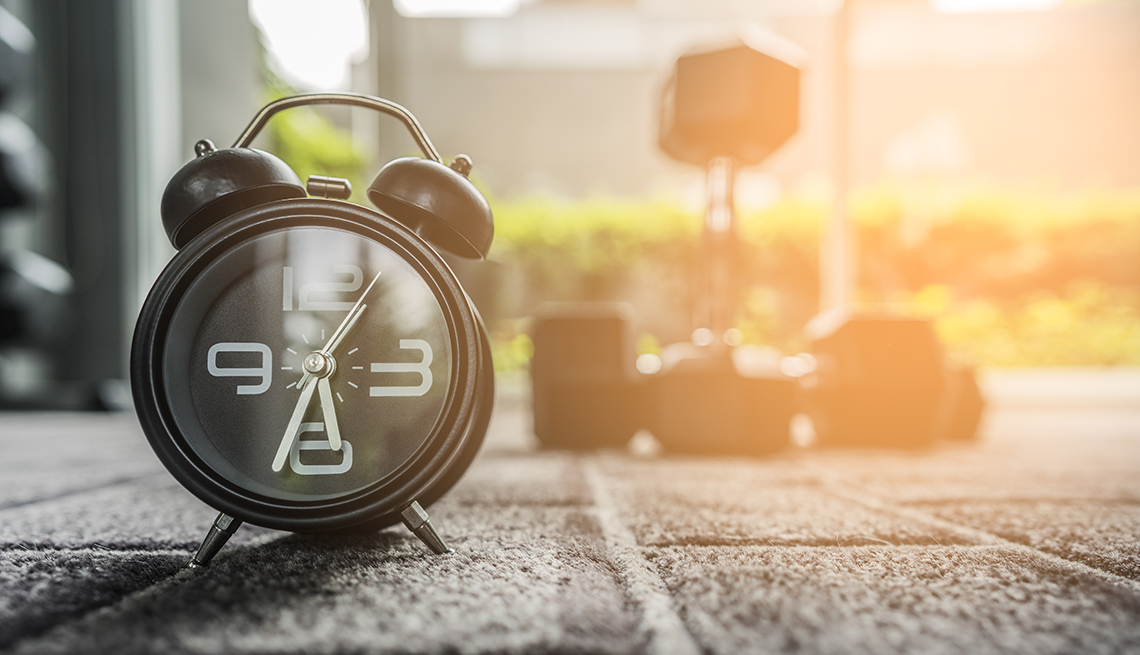“Some of the data on exercise, timing, and diabetes are still inconclusive,” says Goldberg. “It’s important for people with diabetes who are participating in an exercise program to share this with their doctor, have their blood sugar tested, and schedule regular follow-up visits.”
Low-intensity training in the afternoon and evening improves sleep
The best time to exercise for better sleep depends on your body clock and rhythm. Your sleep and wake times follow your body clock. Your circadian rhythm influences when you fall asleep at night. They also affect what time you wake up.
The circadian clock is reset daily according to the daily light-dark cycle. However, regular exercise can reset your circadian clock and help you sleep better. But according to one researcher, there is no one-size-fits-all optimal time to exercise to reset the circadian clock. study On exercise and circadian rhythms.
Overall, the study found that morning exercise caused greater changes in the circadian clock than evening exercise. But the study also found that the influence of one’s own natural sleep/wake tendencies, whether exercising in the morning or in the evening, was optimal for resetting the circadian clock.
For example, morning type participants were found to have greater changes in their circadian clocks with morning exercise. However, nocturnal exercise resulted in a delay in resetting the circadian clock. On the other hand, night owl participants showed a high degree of shift in both morning and evening exercise.
Exercise stimulates your circadian clock, increases your energy expenditure (burning calories), and raises your body temperature, which can help you sleep better, Arciello says. “These changes promote an enhanced hormonal environment, which ultimately promotes a lower core body temperature and improves sleep quality,” he says.
But be careful about adding intense training later in the day. Exercise increases your heart rate and body temperature. This can make falling asleep difficult.
Doing low-intensity endurance and stretching in the early afternoon can help you sleep, Arciello says. Avoid strenuous weight training, resistance training, and interval training. Low- to moderate-intensity cardio in the evening can calm people down, he says. Mind and body exercises such as yoga are especially good for sleep, he says.
The best time to work out depends on your own optimal workout time, but it also depends on your health, circadian rhythm, hormones, and other factors. If you’re exercising to manage diabetes, heart disease, or high blood pressure, talk to your doctor about the best time to exercise. If the “optimal” training time is not convenient for you, choose another time. Goldberg says exercise is beneficial at any time of the day.
Is it okay to exercise on an empty stomach?
Exercising on an empty stomach may be a “mildly effective” way to lose weight and body fat, Arciello said. But he doesn’t recommend it. That’s because an overnight fast depletes carbohydrates in your fuel and energy stores, Arciello said. This will primarily burn stored fat.
When energy stores are depleted, the body burns both fat and muscle tissue.
“So you may burn more fat during fasting exercise, but you’ll also break down and lose more of your healthy lean body mass (muscle tissue),” Arcielo says.
Exercising on an empty stomach also burns fewer calories.
“The body’s metabolism compensates by adjusting its calorie-burning levels to a lower level during exercise, but over time it can constantly readjust to a lower metabolism,” Arcielo says.
If you work out on an empty stomach, Arciello recommends the following steps to maximize fat burning while maintaining adequate hydration and muscle function: By following these guidelines, you can also minimize the loss of lean muscle mass and slowing down your metabolism, he says.
- Aim for up to 60 minutes per session at intensity level 6 or 7 (on a scale of 1-10).
- Do no more than 1 fasted workout per week, no more than 4 weeks at a time.
- Replenish, replenish, and hydrate electrolytes (sodium, potassium, magnesium, chloride, calcium) during and after your workout, along with 20-40 g of high-quality protein within 2 hours of your workout. please.
